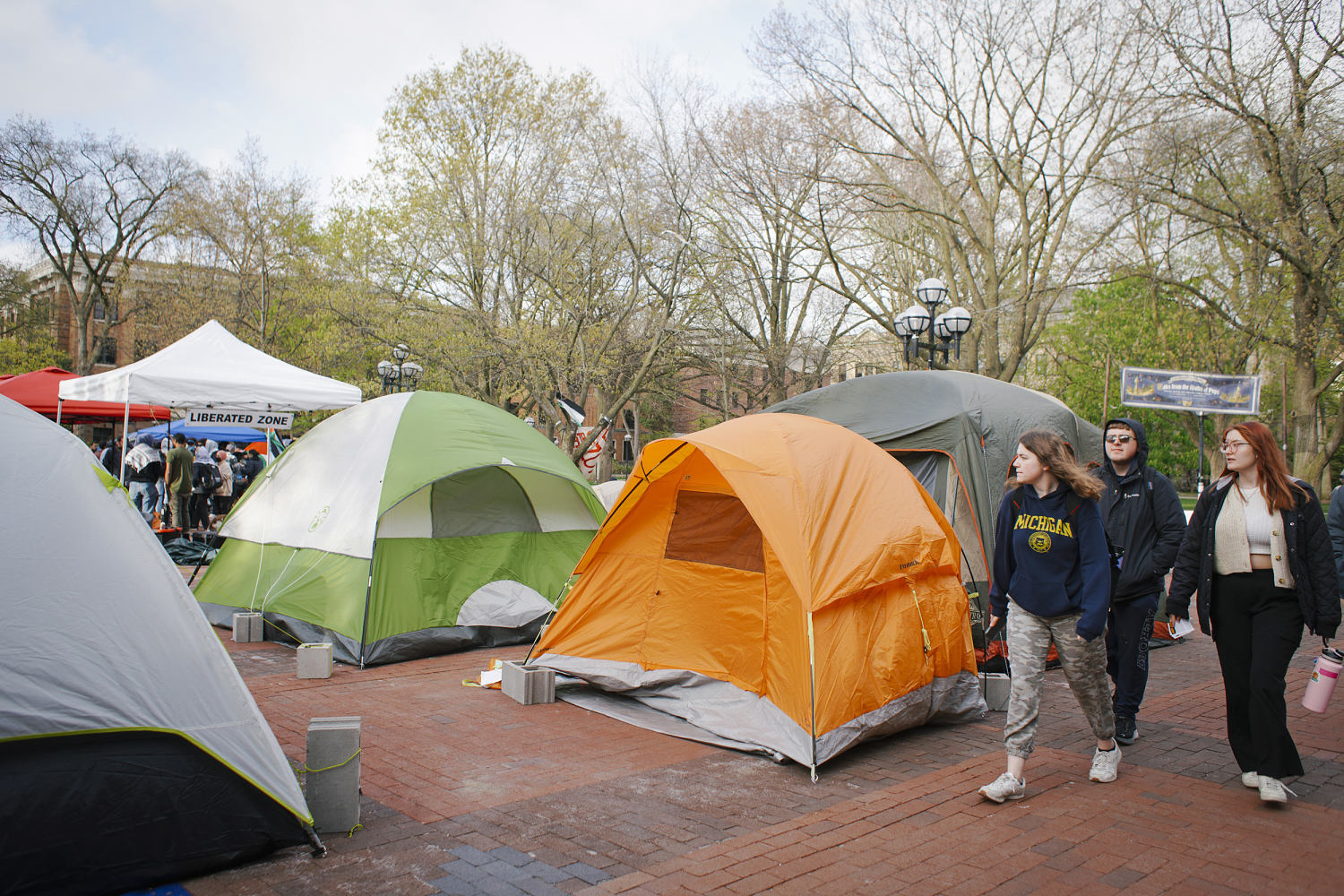As USC cancels commencement, Columbia students worry theirs could be disrupted

As the University of Southern California in Los Angeles canceled its main commencement ceremony because of safety concerns over student protests, students at Columbia University in New York, where anti-war demonstrations led to dozens of arrests, said they feared theirs could be disrupted.
Schools across the country where protests have flared up are keeping mum about whether they will adjust or outright cancel their ceremonies, but some students said they feared a domino effect — much like what happened after students at Columbia became the first to set up an encampment on campus.
Those at other schools, from the University of Michigan to Cornell University in New York, then began to erect their own tents in shows of opposition to the Israel-Hamas war and to urge their schools to divest from companies that do business with Israel.
Graduating college students whose high school commencement ceremonies were canceled or delayed by the coronavirus pandemic say it is just another knock on their rocky road to getting an education.
“The top concern that I’ve been thinking about is what will happen with commencement, especially since our first year of college was online,” said Henry Sears, a senior at Columbia University and a co-president of its chapter of J Street, a student group that describes itself as “pro-Israel, pro-Palestine and pro-peace.”
Another Columbia senior, Jacob Schmeltz, said his high school experience was marred by the pandemic.
“I’m a senior in college, and, especially as someone who graduated high school in 2020, I never had a real high school senior year, either,” said Schmeltz, vice president of the Jewish on Campus Student Union.
USC, where students began protesting after Muslim student Asna Tabassum’s valedictorian speech was canceled because of unspecified security threats, announced it was canceling its main commencement ceremony Thursday as protests on college campuses have ramped up in recent days, leading to hundreds of arrests of students and nonstudents there and at Columbia, where the first tent encampment appeared on April 17.
Later the school canceled the keynote address, which was to be delivered by alumnus Jon M. Chu, director of “Crazy Rich Asians,” and the presentation of honorary degrees to tennis star Billie Jean King and other recipients.
As for the commencement, USC officials said Thursday that they understood the decision was “disappointing” but that they would add new activities and celebrations “to make this commencement academically meaningful, memorable, and uniquely USC.”
It will still host individual school commencement ceremonies and other related events, “where students cross the stage, have their names announced, are photographed, and receive their diplomas.”
At Columbia, Sears said, “I am concerned that there could be disruptions to graduation, especially because it is an event that a lot of people are looking at.”
Columbia said in a statement this week that it was “focused on the events at hand and keeping the campus community safe and secure.”
“Planning is underway for commencement, as well, with the same goals in mind for this cherished annual celebration,” it said.
At the University of Michigan, officials appeared to imply that protests and graduations could co-exist peacefully, saying in a recent statement that commencement ceremonies “have been the site of free expression and peaceful protest for decades and will likely continue to be.”
“The University of Michigan does not attempt to prevent peaceful protests or other speech protected under the First Amendment,” the statement said. “Many ceremonies will have a designated area for protests outside the venue.”
It added that if protests were to “significantly impede” a ceremony, “leadership will take steps to de-escalate and address the interruption.” Officials said that commencement would include security screenings and registration for most events and that banners and flags would be prohibited.
Yale University, where students took over Beinke Square, a plaza at the center of campus, said in a statement that every year “we plan all aspects of commencement weekend to provide our graduates, their families, and faculty and staff with a safe, enjoyable experience.”
“This, of course, includes planning with the security team as they consider anything that might infringe upon a smooth and successful celebration of our graduates,” it said.
Putting commencement aside, Sears and Schmeltz said they have seen and felt growing animosity among their peers on campus.
Sears said that as a Jewish student, he has felt unsafe on campus but that he has also witnessed “horrible actions happen to my friends who are pro-Palestinian.”
He described an incident Saturday at an event where keffiyeh scarves were “ripped off” some students, who were called “terrorists.”
“I feel like the culture of dehumanization on our campus is so out of control that we just are unable to talk to each other,” Sears said.
Schmeltz said that “Jewish students on campus have been really struggling” this year and feel “isolated and marginalized.”
“It’s really difficult to motivate myself to go and celebrate with my peers who have been so openly hostile and ignorant to many of the struggles Jewish students have faced over the past week,” he said.
Students representing pro-Palestinian organizations could not be reached for comment.
On a more positive note, Schmeltz said, students were working to “come together and figure out exactly how we want to create a meaningful way to celebrate given really difficult circumstances” — “just as we had to do in 2020 in the midst of Covid.”





